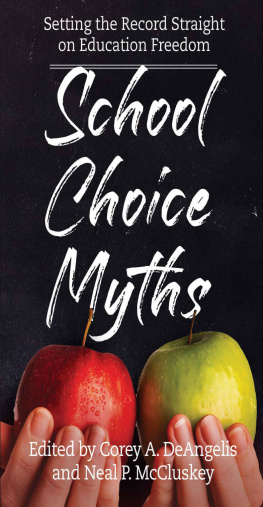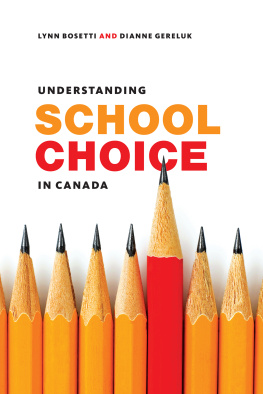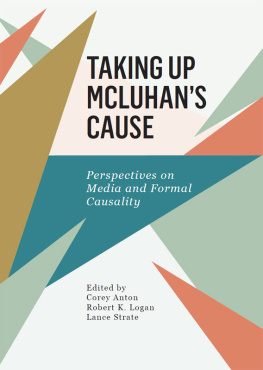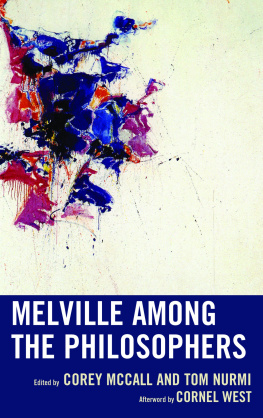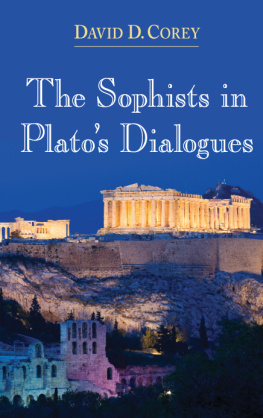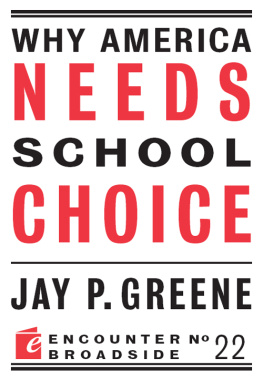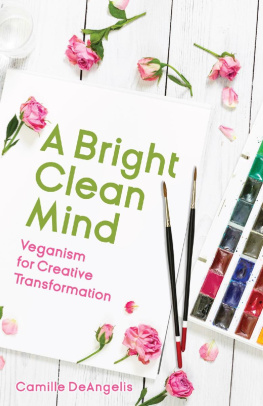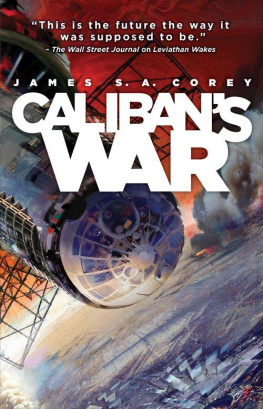Corey A. DeAngelis - School Choice Myths
Here you can read online Corey A. DeAngelis - School Choice Myths full text of the book (entire story) in english for free. Download pdf and epub, get meaning, cover and reviews about this ebook. year: 2020, publisher: Cato Institute, genre: Politics. Description of the work, (preface) as well as reviews are available. Best literature library LitArk.com created for fans of good reading and offers a wide selection of genres:
Romance novel
Science fiction
Adventure
Detective
Science
History
Home and family
Prose
Art
Politics
Computer
Non-fiction
Religion
Business
Children
Humor
Choose a favorite category and find really read worthwhile books. Enjoy immersion in the world of imagination, feel the emotions of the characters or learn something new for yourself, make an fascinating discovery.
- Book:School Choice Myths
- Author:
- Publisher:Cato Institute
- Genre:
- Year:2020
- Rating:3 / 5
- Favourites:Add to favourites
- Your mark:
- 60
- 1
- 2
- 3
- 4
- 5
School Choice Myths: summary, description and annotation
We offer to read an annotation, description, summary or preface (depends on what the author of the book "School Choice Myths" wrote himself). If you haven't found the necessary information about the book — write in the comments, we will try to find it.
School Choice Myths — read online for free the complete book (whole text) full work
Below is the text of the book, divided by pages. System saving the place of the last page read, allows you to conveniently read the book "School Choice Myths" online for free, without having to search again every time where you left off. Put a bookmark, and you can go to the page where you finished reading at any time.
Font size:
Interval:
Bookmark:
School
Choice
Myths
Setting the Record Straight on Education Freedom
School
Choice
Myths
Edited by Corey A. DeAngelis and Neal P. McCluskey

Copyright 2020 by the Cato Institute.
All rights reserved.
ISBN: 978-1-948647-90-8
eISBN: 978-1-948647-92-2
Library of Congress Cataloging-in-Publication Data
McCluskey, Neal P., 1972- editor. | DeAngelis, Corey A., editor. School choice myths : setting the record straight on education freedom / Corey A. DeAngelis and Neal P. McCluskey, Eds.
p.cm.
Washington, DC : Cato Institute, [2020]
Includes bibliographical references and index.
LCCN 2020024864 (print) | LCCN 2020024865 (ebook)
ISBN 9781948647908 (hardback) | ISBN 9781948647922 (ebook)
1. School choiceSocial aspects.2. Educational equalization.
3. Democracy and education.
LB1027.9 .S352 2020 | |
DDC 379.1/11dc23 | 2020024864 |
Jacket design: Jon Meyers.
Printed in Canada.
Cato Institute
1000 Massachusetts Avenue NW
Washington, DC 20001
www.cato.org
CONTENTS
Corey A. DeAngelis and Neal P. McCluskey
Neal P. McCluskey
Phillip W. Magness
Patrick J. Wolf
Tim Keller
Corey A. DeAngelis
Martin F. Lueken and Benjamin Scafidi
Matt Ladner
Albert A. Cheng
Lindsey M. Burke and Jason Bedrick
John Merrifield
Inez Feltscher Stepman
Virginia Walden Ford
LIST OF ILLUSTRATIONS
Figures
Tables
ABBREVIATIONS AND ACRONYMS
ACLU | American Civil Liberties Union |
CPE | Committee for Public Education (Charlottesville, Virginia) |
CPS | Chartered public school |
DCOSP | District of Columbias Opportunity Scholarship Program |
ESA | Education savings account |
ICSP | Indiana Choice Scholarship Program |
IDEA | Individuals with Disabilities Education Act |
IEP | Individualized education program |
LSP | Louisiana Scholarship Program |
NAACP | National Association for the Advancement of Colored People |
NAEP | National Assessment of Educational Progress |
PISA | Programme for International Student Assessment |
RCT | Randomized controlled trial |
SCSF | School Choice Scholarships Foundation |
SFO | Scholarship funding organization |
TPS | Traditional public school |
VEA | Virginia Education Association |
INTRODUCTION
Corey A. DeAngelis and Neal P. McCluskey
It should be no surprise that there is substantial opposition to school choice. Disapproval is probably not from the majority of Americans, with survey responses depending a lot on the specific choice mechanisms discussed and wording of the questions, but opposition is nonetheless appreciable. This question-driven volatility reflects the existence of many reasons that people might oppose choicewe need uniform schools to treat all kids equally, tax dollars should not go to religious schools, and quite a few othersbut all can likely be justified in some rational way. Unfortunately, though there are many understandable reasons to oppose school choice, far too often mythsbeliefs that never had a factual basis or that have been disprovenare trotted out to fight educational freedom.
This is not to say that choice opponents are all wanton purveyors of dishonesty. It is hard to know why people repeat myths, but probably most do not purposely try to deceive. Some of these myths are intuitively appealing or require some semi-deep analysis to penetrate, and the average person with a job, family, and social life simply does not have time to delve deeply enough into education policy to dismiss them.
On one level, for instance, it is clear that private school choice programs, if they use funds that would have otherwise gone to public schools, take money away from public schools. But as Ben Scafidi and Marty Lueken explain in actually more money per child in the public school. And while districts do have some fixed costs that curb their ability to direct more resources to remaining kids, Scafidi and Lueken show that those are limited and that in the long run even buildings can be sold.
How about whether kids whose parents do not choose private schools must suffer as they are left behind? (For those who remember the No Child Left Behind Act, thats a big rhetorical no-no in education policy.) Intuitively it would seem that they would: more engaged and savvy families would be more likely to move, and families with less political and social capital would remain. But as Matt Ladner points out in , competition benefits everyone. It pushes the schools that are losing students to do better, just as competition from FedEx and UPS forces the U.S. Postal Service to deliver packages on Sundays.
Of course, it is quite possible that some who inveigh against school choice know perfectly well that they are propagating untruths, or at least half-truths, and that is too bad. But no matter why people say the things they say, it sure would be nice to have a guide on your desk, bookshelf, Starbucks table, backyard patio furniturewherever you do your education policy reading or writingthat you could grab whenever a myth rears its fantastical head. Such a guide is what this volume aims to be. It tackles 12 of the biggest myths out therea dirty dozen, if you willand arms you with facts and logic to combat mythology wherever and for whatever reason it pops up.
The chapters start with the notion that school choice would Balkanize the country, allowing Americans to scatter into insularand warringcommunities. Its a fear that even former Supreme Court Justice John Paul Stevens expressed in his dissent in Zelman v. Simmons-Harris, a 2002 ruling that school vouchers eligible for use at religious schools do not violate the U.S. Constitutions First Amendment. Its a fear that makes intuitive sense, writes the Cato Institutes Neal McCluskey, but one that also ignores reality: Americans are already highly stratified by race, income, and myriad other factors according to where they live, and, hence, what public schools they attend. Moreover, what research exists (more is needed) suggests that choice, not compulsion, holds the greatest potential, at least in education, to bridge divides.
An extreme, and more repugnant, subset of the Balkanization myth is that school choice began explicitlyand will be used againfor racial segregation of the Jim Crow variety. Weve seen this accusation leveled against choice many times, and there is some factual basis for it: some people did try to escape public school integration after Brown v. Board of Education via public funding to attend segregation academies. But as the American Institute for Economic Researchs Phil Magness explains, not only did the idea of educational freedom long predate Brown, but some segregationists opposed choice on the grounds that it would grease the skids for eventual school integration, subverting massive resistance and potentially opening additional seats in public schools that African Americans would occupy, thereby accelerating integration.
Next pageFont size:
Interval:
Bookmark:
Similar books «School Choice Myths»
Look at similar books to School Choice Myths. We have selected literature similar in name and meaning in the hope of providing readers with more options to find new, interesting, not yet read works.
Discussion, reviews of the book School Choice Myths and just readers' own opinions. Leave your comments, write what you think about the work, its meaning or the main characters. Specify what exactly you liked and what you didn't like, and why you think so.

